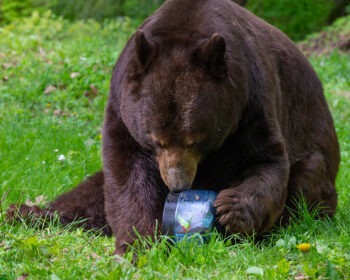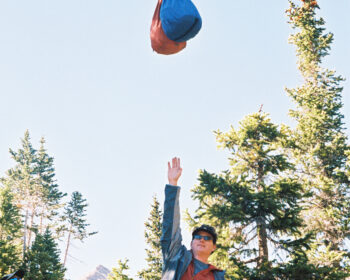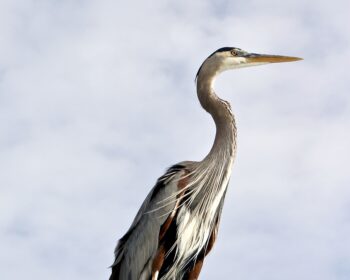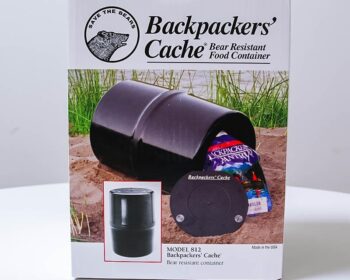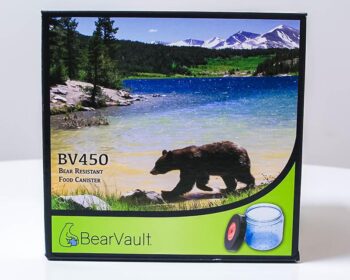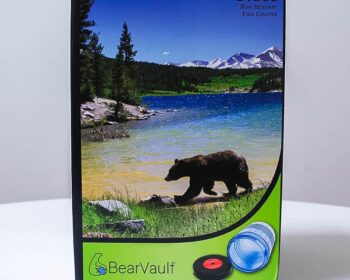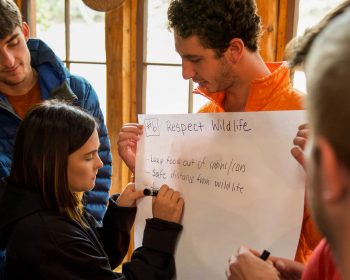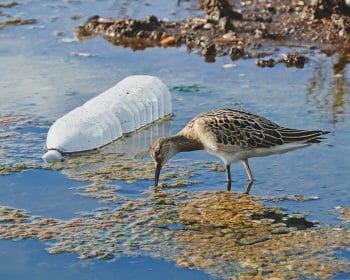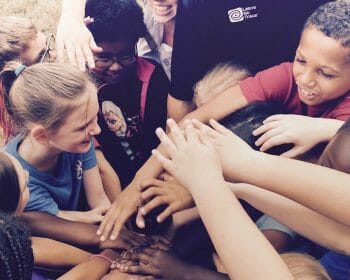Principle 6: Respect Wildlife
Whenever you are in an outdoor space, you are in the natural habitat of many wild animals and should work to minimize your impact on them. Human impacts on wildlife can result in negative human-wildlife interactions, aggressive animals, a decline in the ecosystem’s health, and relocated or euthanized animals. All these impacts can be avoided if visitors respect wildlife on all outdoor trips.
The Basics:
- Observe wildlife from a distance. Do not follow or approach them.
- Never feed animals. Feeding wildlife damages their health, alters natural behaviors, and exposes them to predators and other dangers.
- Control pets at all times, or leave them at home.
- Avoid wildlife during sensitive times: mating, nesting, raising young, or winter.
Practice the Skills of this Principle
Distance
Seeing big and small wildlife is an exciting piece of our time spent outdoors. Whether it be a deer on a national forest trail or a chipmunk in our neighborhood park, we want to ensure we always give wildlife plenty of space. While animals may not seem bothered by our company, they can be unpredictable, and getting too close could cause them to harm us or injure themselves if they try to run away.
During certain times of the year, such as mating or nesting season, animals are even more sensitive to the presence of humans. Seeing humans may cause wildlife to abandon their young or become more aggressive to protect them. In winter, critters have to work extra hard to survive, and causing them to flee will cause them to use the critical energy they need to survive. Make sure you give wildlife extra space during these times of the year.

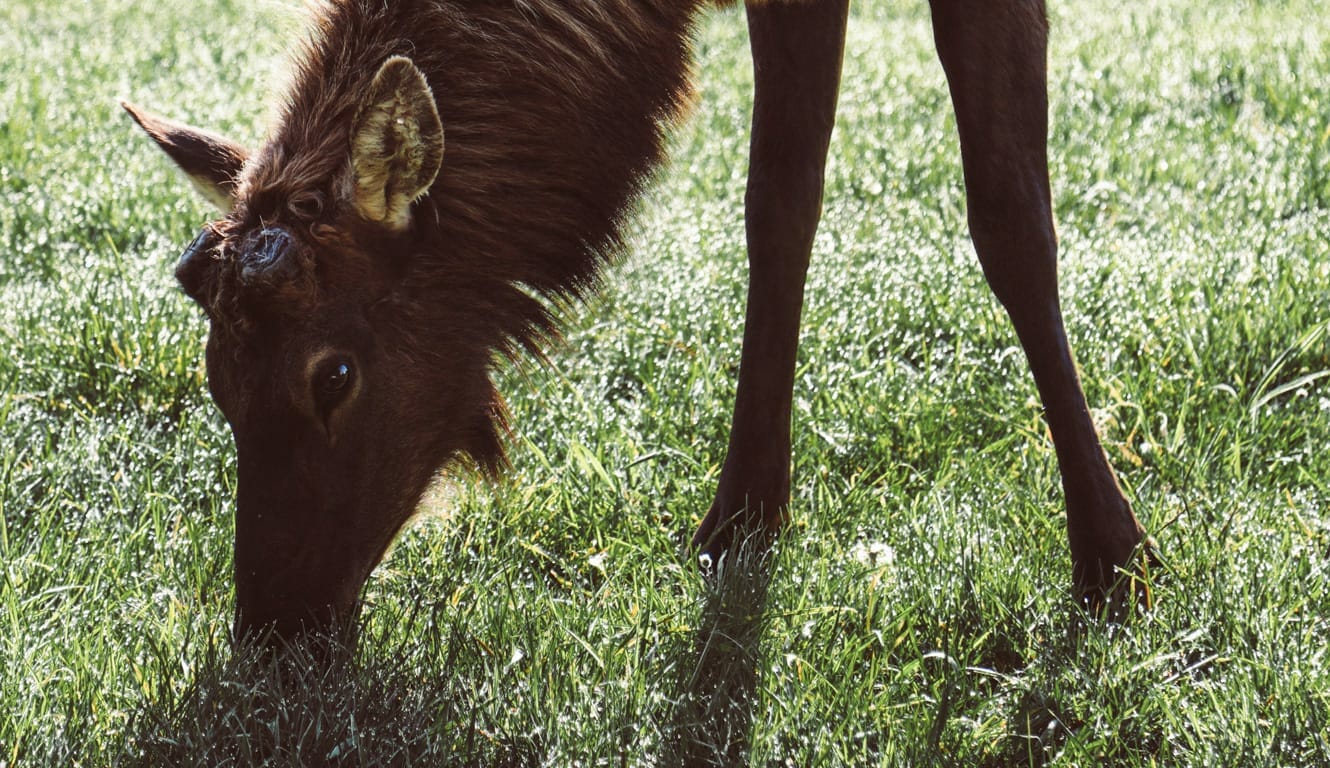
Food Storage
Never feed wildlife, no matter how hungry they may look. Human food is unhealthy for wildlife, and regular access to it can cause animals to no longer seek their natural food sources, relying on us for their meals. Access to our food can also cause wildlife to lose their fear of humans and be attracted to us or unsafe areas like busy roadways.
It is important always to store our food and trash so that wildlife cannot get access to it. How you store your food and trash depends on what type of wildlife is in the area and local regulations around food storage. Putting food into a plastic storage tub may be enough if things like birds, squirrels, and bugs are all we have to worry about. However, in places like bear country, whether black bears or grizzlies, storing food, trash, and anything with a scent, such as toothpaste or deodorant, in a bear canister, locker, or locked vehicle is essential. No matter where you visit, check with local land managers to see what type of food storage is required.
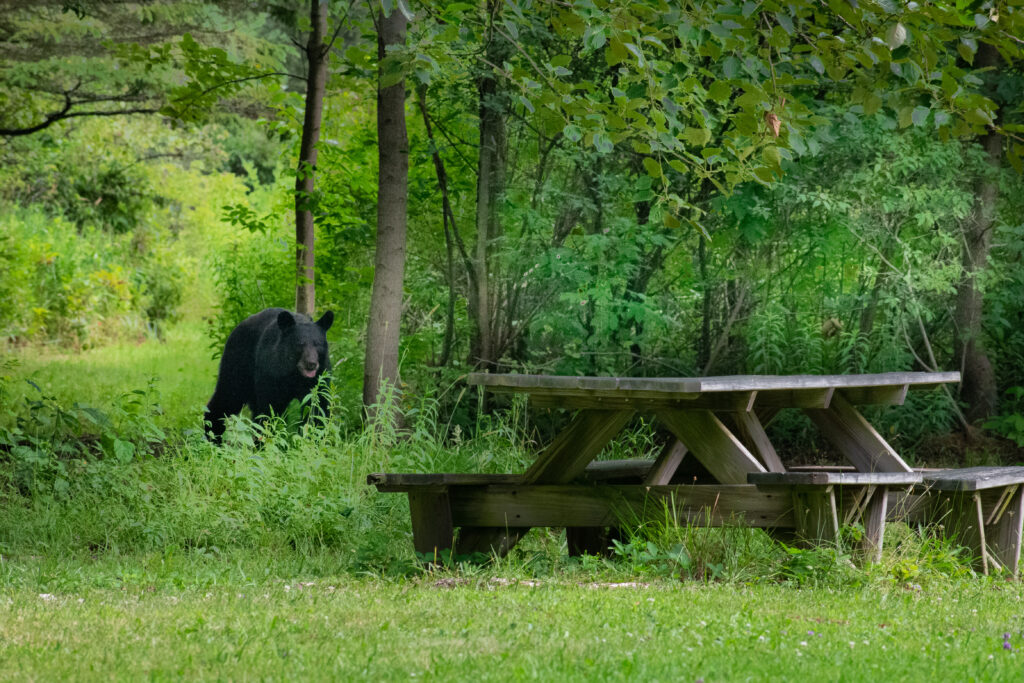
Pets
Pets can be some of the best adventure partners! However, wildlife is likely to see our furry friends as predators. It is important that we make sure our pets keep their distance from all wildlife and are not following or chasing them. Not only can wildlife injure pets in self-defense or while protecting their young, but they can also spread diseases such as rabies. Additionally, wild animals can be injured directly by our pets or while being chased. Keeping your pets on a leash or under voice control and within sight will help keep you, your pets, and wildlife safe.
Shop this Principle
Do you believe that education is the most effective line of defense for protecting the outdoors? Leave No Trace teaches millions of people the critical skills needed to care for the environment every year.
Let’s protect and enjoy our natural world together
Get the latest in Leave No Trace eNews in your inbox so you can stay informed and involved.

